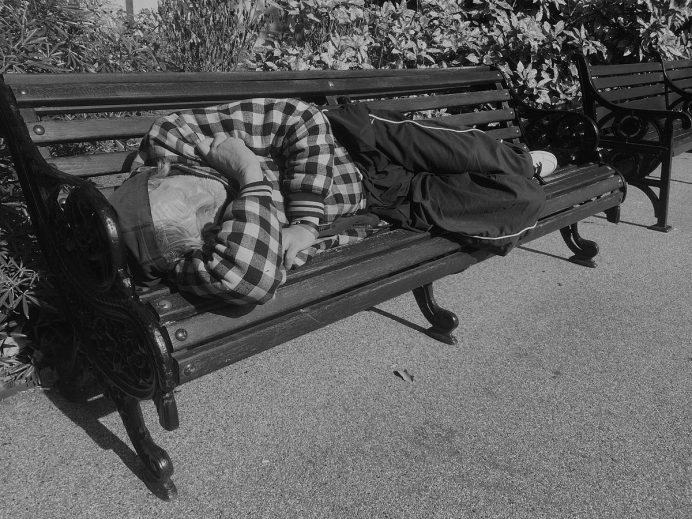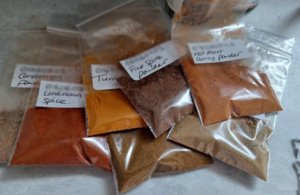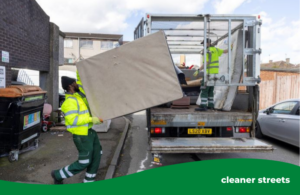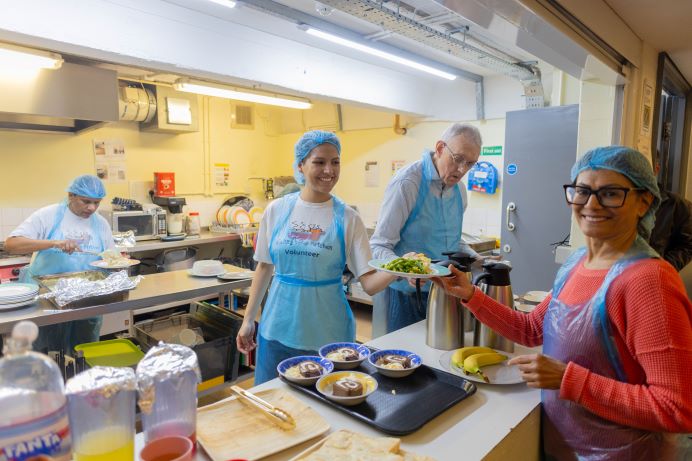“We go out at night and in the early mornings, looking for people,” says one of the outreach workers on the borough’s streets providing support to those unfortunate enough to find themselves homeless and sleeping rough.

Jyoti Kujur is a volunteer for the homelessness charity St Mungo’s, which runs Ealing Council’s outreach service.
With the help of other local charities, such as Ealing Soup Kitchen and Acton Homeless Concern, St Mungo’s does all it can to stabilise the situation locally despite growing pressures.
The council’s homelessness strategy is focusing on preventing people from becoming homeless in the first place – and it seems to be working, with more than 1,500 individuals and families diverted from homelessness in the last year.
Jyoti has worked with St Mungo’s for almost six years and she agrees with the aim of the council’s policy. She said: “I believe in the saying ‘prevention is better than a cure’ because no one wants to, or should, go through that traumatic experience of being homeless.”
However, Jyoti has seen with her own eyes a rise in the number of people who still fall through the cracks and turn to living on the streets – for a variety of reasons.
“I feel homelessness is on the rapid rise everywhere,” she said. “There was a vast difference in the number of homeless from the annual street count done here in 2016 to the one in 2017.
“We found 27 rough sleepers locally in 2016 and, in 2017, there were 60 of them.”
‘Many have physical and mental health problems’
“We can’t comment on individual cases,” Jyoti continued. “And each individual story is unique. But our clients tell us about violence, abuse and worsening problems with mental health.
“Many became homeless following a relationship breakdown, an eviction or losing a job – problems that can happen to anyone.
“I work mainly with the Indian homeless in the area because I speak their language. Most of the stories among them are unique but at the same time similar – because many of them were trapped into the hands of agents who gave them false promises and made false documents or kept their documents. And, when the clients finally ended up in the UK, they were stranded and became homeless because they didn’t hold documents.
“They don’t know the people, don’t speak English, are not familiar with the British system and have no work, no benefit and no fixed abode. They end up on the street, sleeping rough and become the victims of drug and alcohol. Many have physical and mental health problems due to the stress, and coping with the street life.”
‘We gradually build up trusting relationships’
As well as finding the rough sleepers, Jyoti and her colleagues have to build a rapport with them in order to be able to help them.
“We go out at night and in the early mornings, looking for people sleeping rough,” said Jyoti. “Our first priority is to get people off the streets and into accommodation.
“I visit the clients in the places we know they will be usually spending their time, spend some time talking with them and helping them to make plans for their lives, especially with the Indian clients because we understand each others’ language.
“We gradually build up trusting relationships, working with people to offer them routes out of homelessness and towards recovery. We deal with the clients’ complex needs. We work in partnership with other organisations to help people access accommodation as well as support services such as physical and mental health services, drug and alcohol services, and legal services as needed.
“I accompany them to their appointment places such as to hospitals, register them with the local GPs, Drug and Alcohol Services. In many cases language is barrier and so help in language translation and filling up the forms and applications on behalf of them.
“Where appropriate, we assist people with reconnection – helping them to return to their home towns in the UK and abroad.
“St Mungo’s puts the clients at the heart of how it works. St Mungo’s wants everyone to have a place to call home and the opportunity to fulfil their hopes and ambitions. I have seen the dedication in helping these people with their complex needs.”
How might our readers be able to help?
Jyoti has some advice for you if you see a homeless person asking for help or you are concerned for their welfare.
She said: “If the public are concerned about someone sleeping rough, I would urge people to get in touch via the StreetLink website streetlink.org.uk to help connect someone with their local service as soon as possible. This information is helpful for the outreach teams to locate the rough sleepers and support them to get off the streets.”
Photo of London homeless man by Allan Warren – Own work, CC BY-SA 3.0





